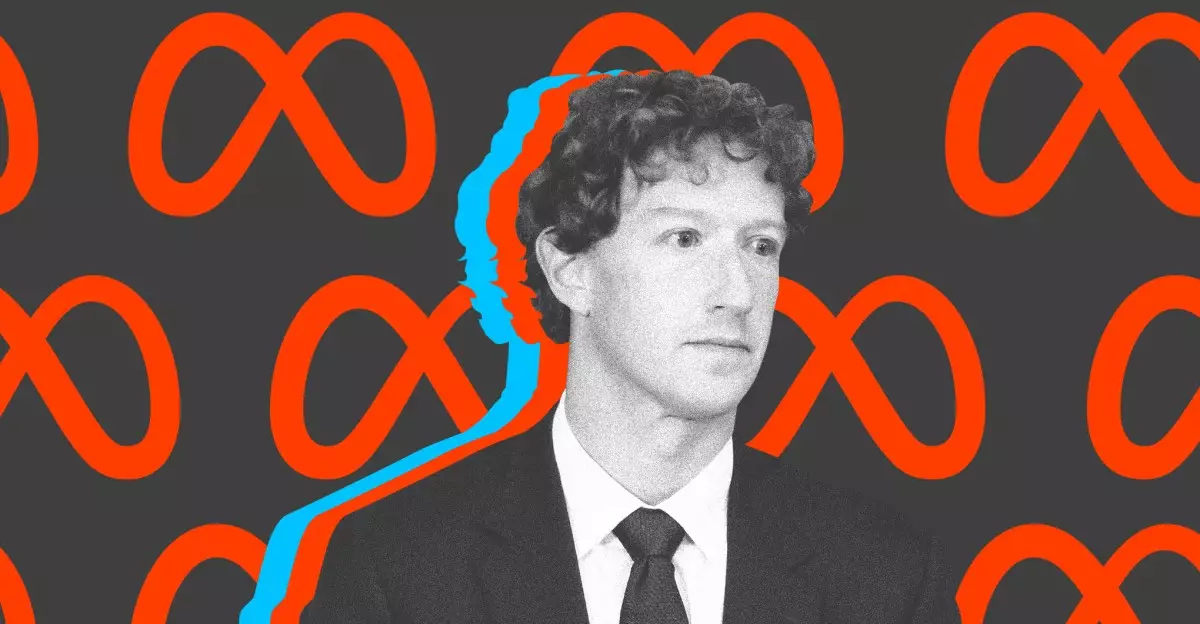In what could be a pivotal moment for the future of the social media landscape, Mark Zuckerberg, the CEO of Meta, recently faced the Federal Trade Commission (FTC) in an antitrust trial that has drawn significant media attention and public scrutiny. This trial is not merely a procedural obligation; it marks a critical juncture in how we define competition in the rapidly evolving digital market. As Zuckerberg sat before a courtroom packed with observers, one couldn’t help but wonder about the ramifications of this trial. Would we witness a monumental shift in Big Tech, or would Zuckerberg’s testimony serve to reinforce the very systems that critics claim stifle innovation?
The tension within the courtroom was palpable. Walking in flanked by security, Zuckerberg knew the stakes for both him and the company. The backdrop to this trial is a lawsuit initiated five years ago, accusing Meta of stifling competition through acquisitions that the FTC claims have harmed consumers and potential competitors alike. As the proceedings began, the lead attorney, Daniel Matheson, posed what seemed like a simple question about Zuckerberg’s tenure during Facebook’s rise—yet this inquiry was anything but trivial; it encapsulated the narrative of innovation versus monopolistic practices.
Reflecting on Facebook’s Humble Beginnings
Zuckerberg’s responses during questioning painted a complicated picture of a company propelled by an underdog mentality. His journey began in a college dorm room, and as he recounted milestones such as the launch of the News Feed, viewers saw a passionate entrepreneur who transformed a simple idea into a global behemoth. Yet the irony lay in whether that same passion had led to tactics deemed anti-competitive. Matheson’s interrogation delved into the darker corners of Facebook’s history, steering Zuckerberg towards the troubling acquisition of Instagram in 2012, which some argue was a strategic move to eliminate a rival rather than an organic addition to his portfolio.
Internal emails revealed during the trial indicated that Zuckerberg himself sensed the competitive threat posed by Instagram. He had voiced concerns about its rapid ascendancy and clearly articulated the dangers of allowing a platform like Instagram to compete openly: “We really need to get our act together quickly on this since Instagram’s growing so fast,” he had warned his team. This was not merely a call to innovate but an implicit admission that the company felt the pressure from a budding competitor.
The Monopoly Argument: A Game of Definitions
At the crux of the FTC’s case is the assertion that Meta wields a monopoly over what it terms “personal social networking services.” Here is where definitions become a battleground—a powerful tactic often employed in legal disputes. The FTC’s argument hinges on narrowing the competitive field to pit Meta against only a handful of rivals, including Snapchat and MeWe. Conversely, Meta’s legal defense painted a broader canvas, incorporating competitors like TikTok and iMessage while arguing that social media constitutes a wide array of user attention-gathering services.
Zuckerberg’s own testimony hinted at the complexities lying behind market valuation and user engagement statistics. In defending Meta’s position, lead attorney Mark Hansen showcased how user engagement on Facebook and Instagram surged when competitors like TikTok experienced technical difficulties. This, he argued, undercut the claims of a monopolistic environment by illustrating the fluid nature of consumer preference. At this junction in the trial, the audience was left to ponder what a fair competitive landscape should resemble in the age of social media.
The Bigger Picture: Innovation, Competition, and Ethical Responsibility
As the trial unfolded, one question became increasingly urgent: can we trust a platform that aggressively acquires its competition to foster genuine innovation? Zuckerberg’s trajectory demonstrates a rush to dominate rather than inspire; while the narrative of ‘connecting people’ remains Meta’s foundational mission, the actions taken in the past cast shadows over these principles. The crux of the FTC’s argument—the belief that Instagram and WhatsApp had the potential to flourish independently—forces us to question whether Facebook’s strategy was in service to users or merely a move to solidify control.
While some observers dismiss the FTC’s maneuvers as mere regulatory overreach, others see this trial as emblematic of a larger struggle for the soul of the internet. The implications extend beyond legal definitions into cultural and ethical territories. Will Zuckerberg’s defense hold, allowing Meta to continue its path of robust growth and expansion? Or will the trial serve as an awakening, prompting a reckoning about what ethical responsibility looks like in the digital age?
As Mark Zuckerberg exited the witness stand, flanked by his security team, the unresolved questions hung in the air, leaving spectators and analysts to grapple with the uncertainties embedded within the fabric of contemporary digital interactions. This trial represents more than just a legal battle; it embodies a significant crossroads for the future of competition, innovation, and user empowerment in the tech arena. As audiences reflect on this high-stakes courtroom drama, it becomes evident that the outcome may very well shape the trajectory of digital innovation for years to come.

